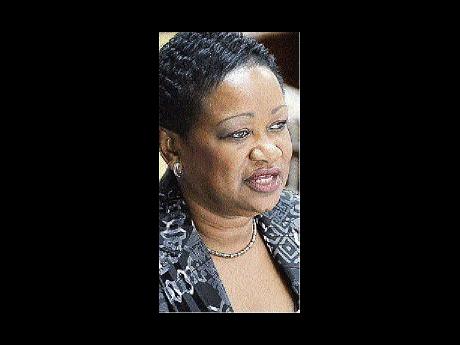We'll back you but ...Bankers say Gov't needs to give more information on economic plan
Arthur Hall, Senior Staff Reporter


Israel
Financial sector officials yesterday continued to support the Government's strategy to control Jamaica's growing debt problem while at the same time urging the Bruce Golding-led administration to place other measures on the table.
In Gordon House today, the Government is expected to disclose the letter of intent submitted to the International Monetary Fund (IMF) and details of the medium-term economic framework.
However, details of the restructuring of the public sector and the promised fiscal responsibility legislation that are key planks to support this IMF deal will not be included in today's presentation.
Financial Secretary Dr Wesley Hughes yesterday told a Gleaner Editors' Forum that drafting instructions had been given for the legislation, which would restrict the fiscal room available to the Government, but the document would not be ready for parliamentary debate today.
Hughes was responding to some of the island's leading bankers, who demanded more information on the medium-term macroeconomic frame-work, even as they assured the Government that they would support the domestic debt swap dubbed the Jamaica Debt Exchange (JDX).
"From the Jamaica Bankers' Association (JBA) perspective, we support the initiative. We believe that it is a tough call on the sector and the entire country, but it is the right call at this time," Minna Israel, president of the JBA, told the Editors' Forum at the Gleaner's North Street offices.
"I think where we sit as a sector, we are looking for more information on the other segments. The fiscal management ... the targets that we will be monitoring you by," Israel said, as she pointed out that the JDX would not fix all the problems facing the country.
Israel was supported by Bruce Bowen, president of Scotiabank, whosaid while his institution was also prepared to support the JDX, it needed further information.
"For us to make a prudent business decision, we need to have as many details as possible on the medium-term economic plan," Bowen said.
According to the Scotiabank boss, while the debt swap was necessary for the country at this time, it meant that Jamaicans would be "paying a high price for the mistakes of the past".
That is a position shared by Patrick Hylton, managing director of the National Commercial Bank (NCB) Group, who raised questions about whether the JDX would get the country out of the problems of the past and put it on a path towards sustainable growth.
"We talk about the medium-term plan that has been approved by the IMF, what are some of the details of that plan, and what are the targets?" questioned Hylton.
"We have accepted that the current debt profile was unsustainable ... . In principle, we are fully supportive of this, but we are saying that there are some other things that should go along with it," Hylton added.
Keith Duncan, managing director of Jamaica Money Market Brokers was quick to add his voice to the call for more information from the Government, even as he applauded the administration for taking action to deal with the debt burden.
"This creates the opportunity for Jamaica to turn this thing around. But this begs the next question, will this opportunity be wasted?" Duncan said.
He added: "There will be a level of accountability through the IMF ... however, we as Jamaicans need to put in our own mechanism for accountability because we understand what is happening on the ground."
Information flow
While Financial Secretary Hughes accepted the need for more information, he argued that measures would be implemented to ensure that the country could hold the Government responsible.
He said there would be a flow of information to allow persons to monitor the performance of the administration.
Hughes also disclosed that while there should be some update on the restructuring of the public sector, that work was not complete. Prime Minister Bruce Golding 10 weeks ago assigned Patricia Sinclair-McCalla to head a special team set up to carry out the rationalisation of the public sector.




( L - R ) Hughes, Duncan, Bowen, Hylton






